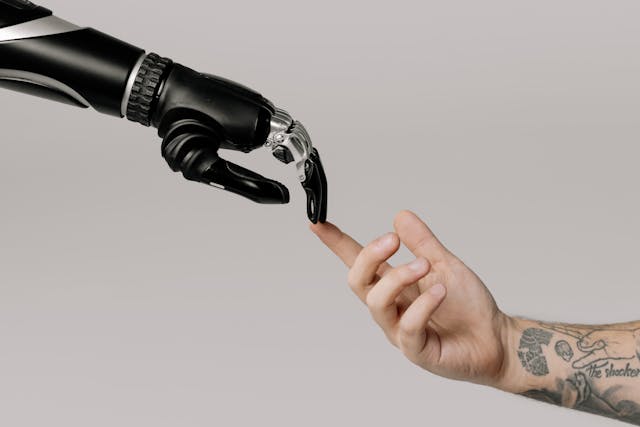In today’s rapidly evolving technological landscape, the rise of Artificial Intelligence (AI) and Machine Learning (ML) has sparked both excitement and apprehension. One of the most persistent concerns surrounding AI and ML is the fear of widespread job loss. However, upon closer examination, it becomes evident that the relationship between AI/ML and employment is far more nuanced than a simple zero-sum game. Let’s delve into the complexities of this issue and explore how AI and ML are reshaping the job market.
Myth: AI and ML Will Lead to Massive Job Loss
The fear of AI and ML causing widespread unemployment is deeply ingrained in popular discourse. The narrative often portrays a bleak future where machines replace human workers across various industries, rendering millions of jobs obsolete. While it’s true that automation can displace certain tasks, the notion of AI and ML leading to mass unemployment overlooks several crucial factors.
Reality Check: AI and ML Fuel Job Creation
Contrary to the doomsday predictions, AI and ML have the potential to create as many jobs as they displace, if not more. These technologies enable businesses to streamline operations, enhance productivity, and innovate in ways previously unimaginable. As a result, new roles emerge to support and leverage AI and ML systems, spanning fields such as data science, AI engineering, cybersecurity, and more.
1. Automation Augmentation, Not Replacement
Rather than outright replacing human workers, AI and ML often complement and augment human capabilities. Automation frees up employees from repetitive and mundane tasks, allowing them to focus on higher-value activities that require creativity, critical thinking, and emotional intelligence. For instance, AI-powered chatbots handle routine customer inquiries, empowering human agents to handle complex issues and provide personalized support.
2. The Rise of New Job Categories
The integration of AI and ML into various industries spawns entirely new job categories and skill sets. Data scientists, machine learning engineers, and AI ethicists are in high demand as organizations seek expertise in harnessing the power of data and algorithms responsibly. Moreover, AI and ML create opportunities for interdisciplinary roles that bridge the gap between technology and domain-specific knowledge, such as healthcare informatics specialists and financial analysts fluent in AI-driven predictive modeling.
3. Reskilling and Upskilling for the Future
As the nature of work evolves, so too must the skills of the workforce. The rapid pace of technological advancement underscores the importance of continuous learning and professional development. Governments, educational institutions, and businesses must collaborate to provide accessible reskilling and upskilling programs that equip workers with the competencies needed to thrive in an AI-driven economy. By investing in lifelong learning initiatives, individuals can adapt to emerging job roles and remain competitive in the job market.
Embracing the Future of Work
So, the narrative of AI and ML leading to widespread job loss oversimplifies a complex reality. While automation may displace certain tasks, it also creates new opportunities for innovation, efficiency, and job creation. By embracing the potential of AI and ML, we can reshape the future of work, leveraging technology to enhance human capabilities and drive economic prosperity. Rather than fearing the unknown, let us embrace the possibilities that AI and ML offer, ensuring a future where technology serves as a catalyst for inclusive growth and shared prosperity.
Let’s remember: the future of work isn’t about man versus machine; it’s about man and machine working together to build a brighter tomorrow.


